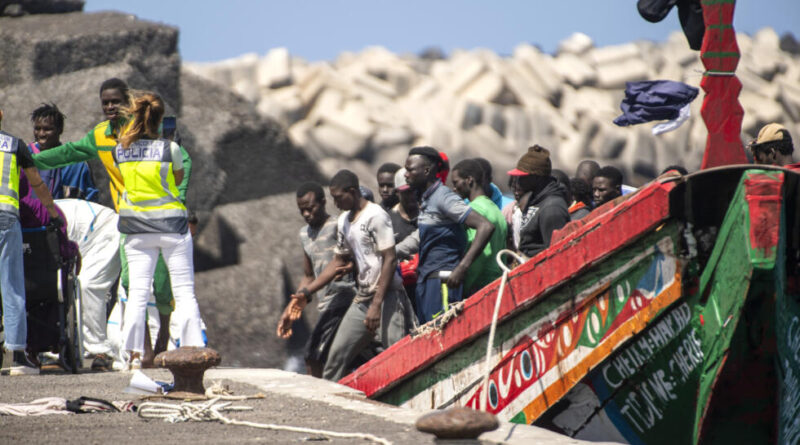Spain’s Diplomat Tours West Africa on Migration Issues
Tuesday, as the European country fought to control the number of people undertaking the perilous Atlantic crossing by boat to the Canary Islands, Spain’s prime leader set out on a three-day visit of West Africa.
More than 22,000 people have disembarked on the shores of the Spanish archipelago, which is close to the African coast and serves as a transit area for migrants and refugees attempting to reach continental Europe, since January, according to Spain’s Interior Ministry. This is more than twice the number of irregular arrivals for the same period last year.
Pedro Sánchez, the prime minister of Spain, arrives in Mauritania and then travels south to Senegal and the Gambia. Smugglers now primarily use the three coastal nations as their ports of departure when launching their jam-packed boats.
Along with unemployed youth from Senegal, Mauritania, and other West African countries looking for better job chances overseas, thousands of Malian migrants are among those boarding the dangerous Atlantic route to the Canaries. The refugees are fleeing violence and instability.
Additionally, the number of children and teenagers visiting the Canary Islands by themselves is rising, overburdening the local government in charge of their care. When sailing conditions improve in the treacherous Atlantic Ocean between West Africa and the Spanish island this autumn, Spanish officials are preparing for even more arrivals.
Sánchez is anticipated to address the matter by inking multiple bilateral agreements with his African colleagues and enhancing collaboration between Spanish and local security services in their joint efforts to thwart human smuggling.
Additionally, Spain plans to increase the scope of its circular migration program, which permits immigrants to temporarily work in Spain in jobs related to agriculture. The Spanish government announced that it would also announce longer-term investment and commercial collaborations in the areas of development, connectivity, and education in order to address the underlying reasons of migration.
It’s the second time that the Spanish leader visits Mauritania this year. In February, Sánchez traveled to the largely deserted and impoverished nation alongside European Commission President Ursula von der Leyen and announced 210 million euros (around $235 million) to help the country curb migration. Seen as a beacon of stability in the volatile Sahel region, Mauritania hosts about 200,000 Malian refugees on its border.



